The Leibniz-IZW regular publishes press releases on key findings and insights from its research and on events, awards or personalia. The press releases are distributed directly to journalists on our press release distribution mailing list. Press releases are also disseminated through the distribution services Informationsdienst Wissenschaft, AlphaGalileo and EurekAlert. Are you interested in receiving our press releases directly via e-mail? In this case please send us an email to presse@izw-berlin.de.
Current press releases
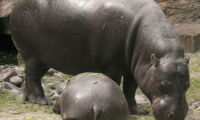
Modify thy ejaculate to determine the sex of your offspring
Some animal and human populations were shown to shift their birth sex ratio from the expected unity. Using fluorescence in situ hybridisation, a research team now shows in a study that males in a captive endangered pygmy hippopotamus population may be able to adjust the ratio of X- and Y-chromosome bearing spermatozoa in their ejaculates, in favour of producing more female. This could represent a way for the males to reduce competition for females from other males in this captive population.
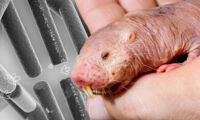
The buried code to healthy ageing
Jena`s Leibniz Institute for Age Research - Fritz Lipmann Institute (FLI) and Berlin`s Leibniz Institute for Zoo and Wildlife Research (IZW) from Germany are jointly starting a project for ageing research in 2012. Within the framework of the “Joint Initiative Research and Innovation” (PAKT), researchers want to identify molecular networks responsible for a long life in health. Naked mole-rats (Heterocephalus glaber) act as a model organism, these animals can reach a high age without suffering from age-related diseases. The Federal Ministry of Education and Research (BMBF) and the Federal States invest 1.5 million euro within three years for this innovative research.
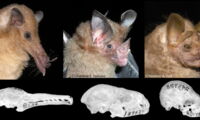
A big bite brings big success
One of the biggest puzzles in evolution is why some groups of organisms contain many species while others have only a few. You might expect that groups of the same geological age would have a similar number of species, but that is seldom the case. Among mammals, the New World Leaf-Nosed bats comprise almost 200 species, while their closest relatives include only 10 species despite evolving over the same period of time. Why are there so many species of New World Leaf-Nosed bats?
Ancient DNA provides new insights into cave paintings of horses
An international team of researchers has used ancient DNA to shed new light on the realism of horses depicted in prehistoric cave paintings.
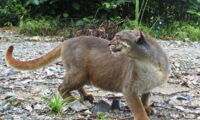
24 species of carnivores confirmed for Borneo
The first Borneo Carnivore Symposium (BCS) was concluded on a high note this week as worldwide experts determined species priorities for the Bornean nations of Brunei Darussalam, Indonesia and Malaysia.

Wildlife conservation in managed forests - International cooperation
On Monday, 7th February 2011, a Memorandum of Understanding (MoU) was signed between the State Government of Sabah (Malaysia), represented by the Sabah Forestry Department (SFD) and the Leibniz Institute for Zoo and Wildlife Research (IZW) of Germany.
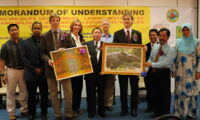
Germany supports Malaysia to prevent extinction crisis of Asian mammals
On Monday, 22nd November 2010, a Memorandum of Understanding (MoU) was signed between the Leibniz Institute for Zoo and Wildlife Research (IZW), the Leipzig Zoo (LZ) and the State Government of Sabah, represented by the Sabah Wildlife Department (SWD), combining international expertise and resources in order to prevent further losses of biodiversity.
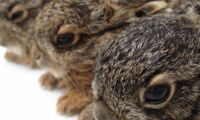
Super mum’s superconception
European brown hares can develop a second pregnancy whilst the previous litter is not delivered. This superconception increases their reproductive success.

